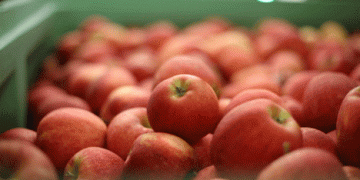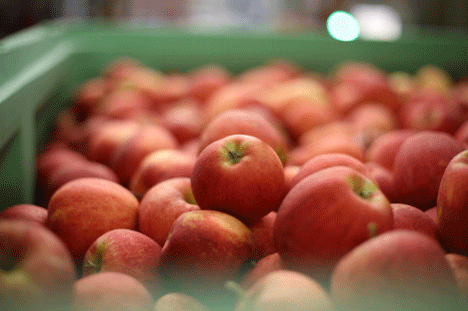Austria’s fruit-growing industry faced a challenging 2024 season, reporting its second-lowest output in a decade. According to Statistik Austria, the country produced just 145,400 tons of fruit this year, a steep 24% decline from 2023 and 30% below the ten-year average. The primary reason for this downturn was late frosts in the key apple-growing region of Styria, paired with high summer temperatures that disrupted normal growing cycles.
Key Highlights from the 2024 Harvest
- Apple Production Plummets
Apples, comprising 90% of Austria’s pome fruit production, were hit the hardest:
- Output fell to 104,000 tons, a 33% decline from 2023 and 40% below the ten-year average.
- Styria, traditionally the leading apple producer, contributed only 61% of national production compared to 74% in 2023.
- Pears Rebound
Despite frost-related challenges in previous years, pear production increased by 58% compared to 2023, reaching 10,300 tons. This represents a recovery but remains below historical highs. - Stone Fruit Performs Above Expectations
The earlier blooming period shielded stone fruits from severe frost damage:
- Total production was 11,500 tons, 42% higher than 2023 and 8% above the ten-year average.
- Apricots: Yielded 5,200 tons, 36% above 2023, although 4% below the ten-year average. Lower Austria accounted for 60% of production.
- Cherries and Sour Cherries: Harvested 2,500 tons, a 15% increase from 2023 and 26% above the ten-year average.
- Berries Showcase Resilience
While total berry output saw a slight 3% decrease from 2023, it was 5% above the ten-year average: - Strawberries led this segment, with 14,300 tons, 8% above the ten-year average.
Impact of Weather and Market Trends
Austria’s 2024 fruit harvest reflects the direct impacts of climate variability.
- Late Frosts: Disrupted apple yields significantly, with many growers unable to recover from the damage to blossoms.
- Summer Heat: Accelerated ripening and harvesting schedules, particularly for stone fruits and berries, shortening storage and distribution timelines.
- Regional Shifts: Styria’s declining apple share signals vulnerabilities in traditional production hubs, pushing growers to diversify or explore climate-resilient varieties.
Austria’s 2024 fruit harvest underscores the critical need for adaptive strategies in agriculture to mitigate the effects of climate change. While apple production suffered drastically, the resilience of stone fruits and berries highlights the potential for diversification within the sector. For farmers and agribusiness stakeholders, investing in frost protection, heat-resistant varieties, and modern cultivation techniques will be vital to ensuring long-term stability and sustainability in fruit production.































